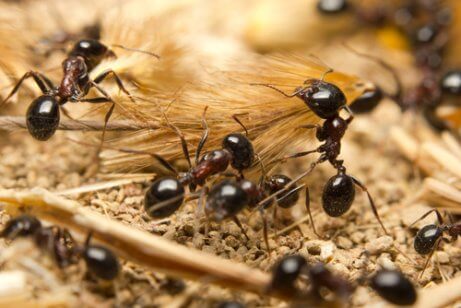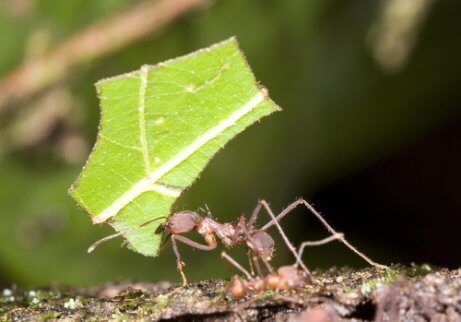Humans Didn't Invent Agriculture, Ants Did


Written and verified by the vet Eugenio Fernández Suárez
Agriculture is undoubtedly one of the greatest feats in the history of humanity. Together with other inventions, it enabled us to leave the Paleolithic era. But what if humans didn’t invent agriculture after all? Intrigued? Read on!
Humans didn’t invent agriculture, ants did
Experts believe that agriculture began with human beings 12,000 years ago in Asia. Together with their livestock, this allowed humans to establish themselves and begin to develop techniques that would eventually bring us to where we are now. However, believe it or not, a new study shows that ants have been involved in growing fungi for at least sixty million years now!

There are actually over 250 species of “agricultural” ants (farmer ants, to give them their proper name). That’s why we’re not joking about the fact that humans didn’t invent agriculture, or at least the first versions of it.
Researchers believe that this new study demonstrates that the ability of ants to farm has evolved several times separately, and this is known as cogent evolution.
Ants cultivate fungi that are susceptible to parasites. However, the ants remain in symbiosis with the actinobacteria, which allows both organisms to survive. Actinobacteria is an antibiotic-producing bacteria that allows the ants to control the fungal parasitisms in their “crops”.
Humans didn’t invent agriculture, but pesticides?
These bacteria belong to the genus Pseudonocardia, and they are known to maintain this symbiosis with many leaf-cutting ants, which originate from several Latin American countries.
These ants have a compartment known as crypts, which allow them to transport actinobacteria. This discovery was found in fossilized amber, where air bubbles allowed them to see the ancient activity of actinobacteria.
In today’s leaf-cutting ants, this symbiosis was already known and it allows ants to have true portable antibiotics and to devote themselves to fertilizing their harvest.
However, the process of agriculture in ants could actually be more real than it seems. In addition, ants have domesticated the fungus, due to the fact that it doesn’t produce spores. Therefore, this “domestication” would have started earlier than any similar activity carried out by man. Experts think that ants have been doing it for over 15 million years.

Ants even go as far as to eliminate the remains of the crop in order to prevent the growth of the parasite. In addition, this helps to maintain the health of their own particular piece of land. Meanwhile, other ants provide fresh material to the crops in order to continue providing food for the colony.
So, all of this makes it pretty clear that humans didn’t invent agriculture. Fungi-growing ants are real and do a very similar job to humans.
Resistance to antibiotics
Interestingly, ant colonies never show signs of resistance to antibiotics. This has come about after thousands of years of depending on actinobacteria. Because of this, researchers believe that ants could be useful to help us find out more about antibiotic resistance, one of the biggest threats to human health in the 21st century.
All cited sources were thoroughly reviewed by our team to ensure their quality, reliability, currency, and validity. The bibliography of this article was considered reliable and of academic or scientific accuracy.
- Munkacsi, A. B., Pan, J. J., Villesen, P., Mueller, U. G., Blackwell, M., & McLaughlin, D. J. (2004). Convergent coevolution in the domestication of coral mushrooms by fungus–growing ants. Proceedings of the Royal Society of London B: Biological Sciences, 271(1550), 1777-1782.
This text is provided for informational purposes only and does not replace consultation with a professional. If in doubt, consult your specialist.